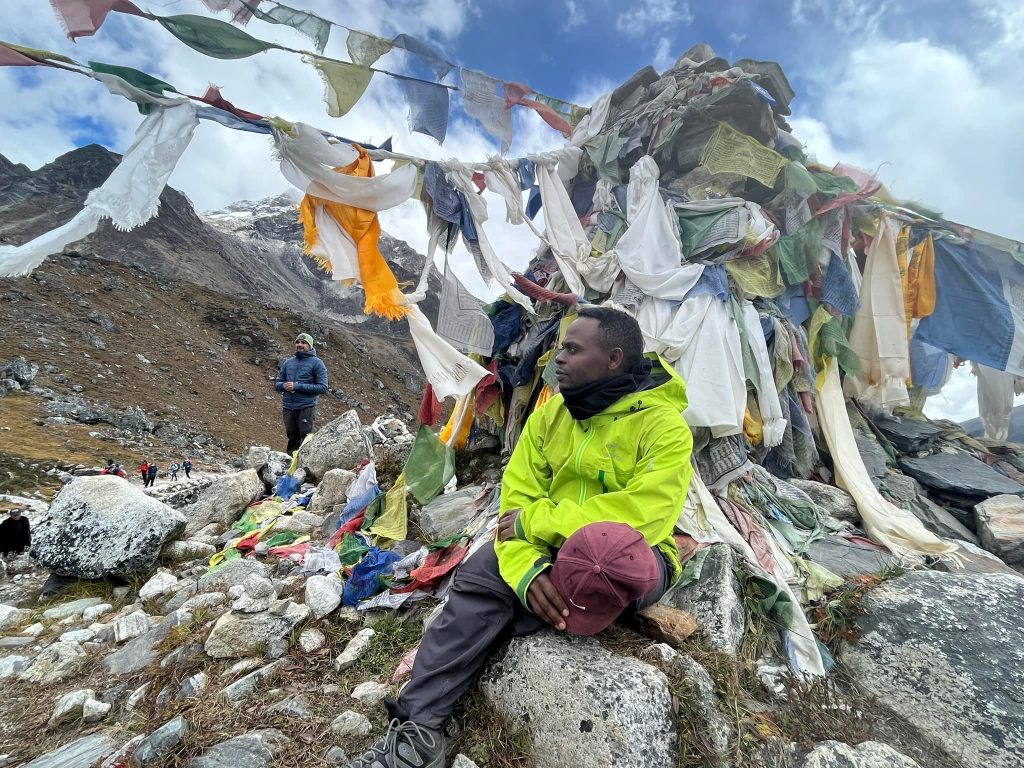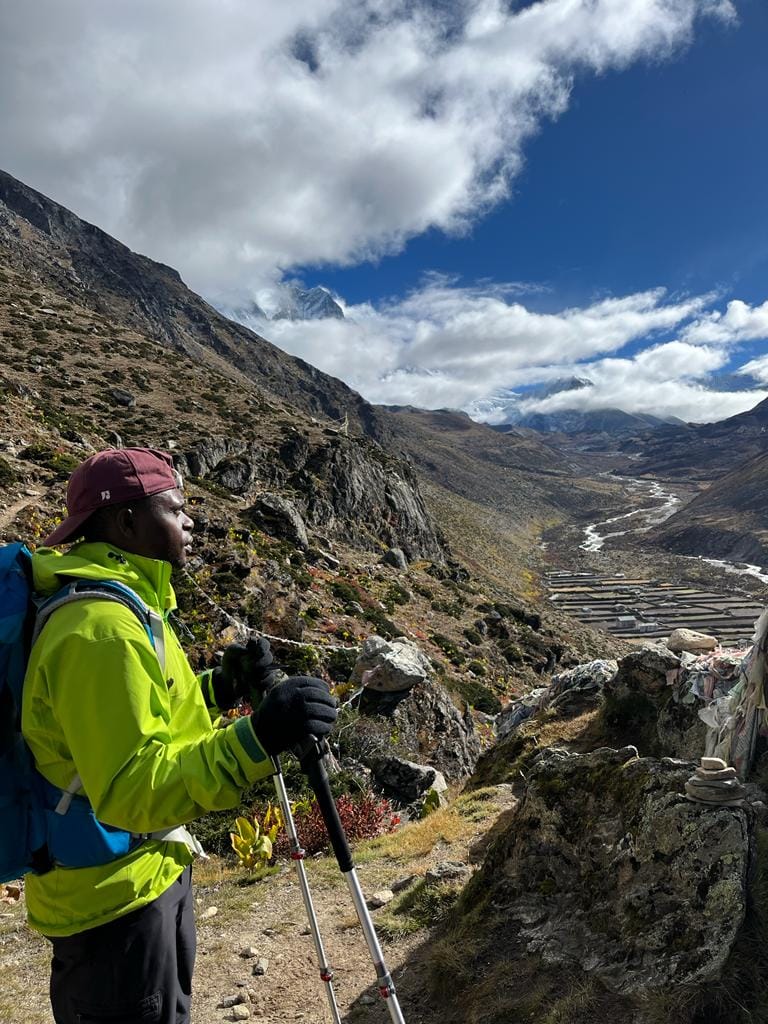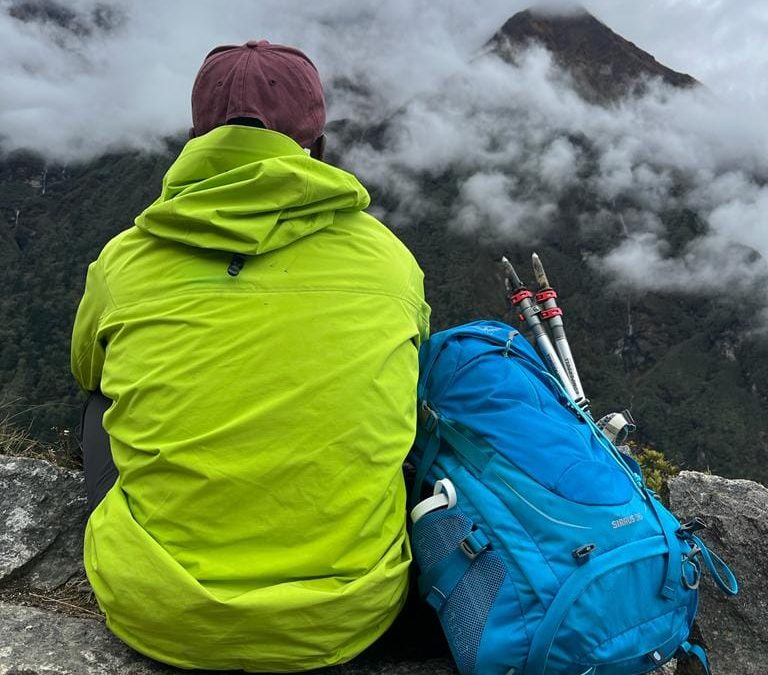In 2022, I made the climb to Everest Base Camp in Nepal.
I didn’t go to chase a summit or prove anything.
I went because something inside me had gone quiet – not broken, just tired. Not loud, but heavy. I needed space that didn’t ask anything from me. I needed to walk, to feel something steady under my feet. I needed silence that didn’t come from turning things off, but from being somewhere that didn’t care who I was. Somewhere I could simply be.
I thought I was climbing a mountain.
But as my legs pushed upward, it was my spirit that was rising.
There are no shortcuts in high altitude. No distractions. No pretending.
Only the next step, the next breath, and the part of you that must show up fully, or not at all.
The higher we climbed, the more I had to surrender.
The mountain had all the power.
The air grew thinner, and each breath became something I had to fight for. Not with fear – but with attention.
And that’s when it happened.
I had to let go.
We talk a lot about being present. But most of the time, it’s still an idea , a habit, a hope, something we reach for.
On the mountain, it was the only option.
When your breath is uncertain, you pay attention.
To your lungs. To your steps. To the wind across your face.
There is no future to plan, no past to carry.
Only this moment – and whether you’ll take the next breath.
I began to sense the world with all of me. Not just thoughts, but skin, eyes, and breath.
I saw the sharp edges of the ridges, the sun hitting snow like it was catching fire.
I heard silence, not emptiness, but the kind of quiet that makes space for everything.
I tasted the bite of altitude, the dryness on my tongue.
I felt the ache in my legs, the burn in my shoulders, the cold in my fingertips.
And I smelled stone, earth, wind, the raw scent of a place untouched.
Presence is connection

And from that full presence, something in me softened.
I began to notice the people. Not just see them but feel something in them that I hadn’t felt before. Not the trekkers passing through, but the ones who belong to the mountain.
The porters. The elders. The families in the villages along the way.
Their lives aren’t easy. They carry weight I couldn’t imagine. Sleep in bare rooms. Rise before the sun. Work in silence, without complaint. What moved me wasn’t just their resilience, it was their lightness.
There was a grace in the way they walked. A quiet dignity in the way they listened.
It was as if struggle had shaped them but not hardened them.
Like the mountain had carved away everything extra and left only what was true.
The children, barefoot and dust-covered, didn’t ask for anything.
They played with pieces of string, old wheels, their own voices.
Their joy didn’t feel innocent, it felt wise. Like they knew something we forget.
The elders didn’t speak much, but their eyes did.
Eyes that had seen snow fall and melt a thousand times and knew not to rush anything.
When they looked at you, it wasn’t with curiosity.
It was with recognition – like they saw your exhaustion and understood it.
Even the mountain dogs, strong, sure-footed, moved through the trail like they were born from the rock itself.
They didn’t look back. They didn’t hurry.
They just walked beside you, steady, like presence made flesh. Like a beautiful incarnated soul.
And I began to understand something I hadn’t before.
They weren’t just surviving the mountain.
They had become part of it.

At Base Camp, I stood still for a long time.
Not to take a photo. Not to prove I was there.
But because something in me was finally quiet – and it felt right to let it stay that way.
I didn’t come home with answers.
But I came back with something better: a breath I hadn’t felt in years. A rhythm that wasn’t rushed. A quiet kind of strength.
The mountain didn’t fix anything.
But it gave me back something I didn’t know I’d lost, the ability to move forward, slowly, simply, without needing to hold everything at once.
Sometimes the only thing that matters
is the next step.
And the breath that carries you there.

